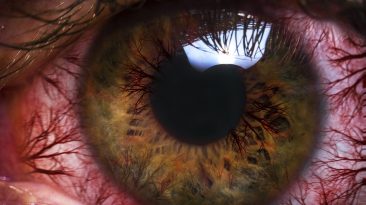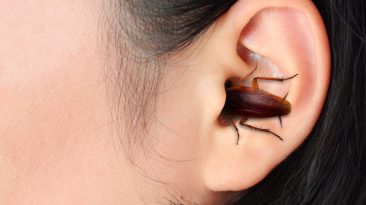Fever, then swollen lymph nodes and then large lesions formed all over your body. After more than two years of COVID-19, the next pandemic might be spreading around the world. And you could be one of the first people to contract it. What would happen to your body if you got monkeypox? Why could you get it without even leaving your country? And what are the chances we could be on the verge of the next viral outbreak?
Monkeypox is the next virus everyone is talking about. And just like COVID-19, it’s zoonotic, meaning it can be transmitted to you from an infected animal. It’s similar to smallpox, but it isn’t quite that. Unlike COVID-19, monkeypox has been around for decades. Since the 1970s, it’s been reported in Central and West Africa. And just recently, the virus made it into the Western world.
One thing that really worries scientists NOW is that you don’t even have to go to Africa to get infected. See, the world has dealt with monkeypox cases before. Some of those infected may have brought it from Nigeria, which has been dealing with a large outbreak since 2017. But this time, it’s different. It looks like it could be spread to you by getting intimate with someone.
Although health authorities aren’t sure how people are catching monkeypox outside of Central and West Africa, there is one interesting theory. It suggests that you could get infected during sexual intercourse. Well, before you get excited, science is still unclear if you could get monkeypox specifically through sexual transmission. But you could get it through body fluids, lesions or respiratory droplets of someone who’s already infected.
What scientists do know for sure is you can contract monkeypox if you come into contact with an infected animal’s bodily fluids. And before you start being alert around monkeys, these primates don’t have much to do with spreading the virus. Monkeypox is typically carried by small rodents like tree squirrels, rope squirrels and dormice.
If you were carrying the virus, you wouldn’t know right away. That’s because monkeypox has an incubation period between five and 21 days. When the infection kicked in, the first thing you’d notice would be a fever. You’d have a horrible headache, and you’d feel very tired. And these symptoms could last for up to five days.
At first, it wouldn’t be really much different from chickenpox or measles. Except your lymph nodes would get swollen. So watch them closely. After one to three days of fever, things would start getting worse. You’d experience a rash all over your face, hands and feet. There’s a 70% chance you’d get an eruption inside your mouth and a 30% chance the rash would spread to your genitalia. It could even affect your eyes.
You could get lucky and only have a few lesions. Or you could have several thousand of them. First, they’d look like slightly raised bumps on your skin. Then, they’d get filled with clear fluid. In one or two days, this fluid would get yellowish. And about a week after that, your lesions would dry up and fall off. Not too bad, right?
Unfortunately, it could get worse. It’s possible that monkeypox wouldn’t be the only virus attacking your body. It could come with potentially serious secondary issues like pneumonia, encephalitis and infection of the corneas. And there’s not one approved treatment for monkeypox. Smallpox antivirals can help you treat monkeypox symptoms.
But you could manage your symptoms by drinking lots of fluids and eating well. You should also make sure you’re vaccinated against smallpox. Scientists confirmed that the smallpox vaccine is about 85% effective at preventing monkeypox. Other than that, you’d likely be fine after a couple of weeks. Only some scars on your skin would remain as a reminder that you’d contracted monkeypox.
Overall, there’s no reason to panic and stock up on toilet paper. Again. Monkeypox is no COVID-19. It can’t be transmitted from across a room. Plus, monkeypox is nothing new. We weren’t prepared to face COVID-19. But we have decades of information on the monkeypox virus and a working vaccine. So let’s not lose our heads over it.
Sources
- “What Is Monkeypox And How Do You Catch It?”. 2022. bbc.com.
- “Monkeypox”. 2022. who.int.
- “Rare monkeypox outbreak in U.K., Europe and U.S.: What is it and should we worry?”. Michaeleen Doucleff. 2022. npr.org.
- “Monkeypox: Clinical recognition”. 2022. cdc.gov.
- “Monkeypox Outbreak: WHO Working On Sexual Contact Theory, Top Adviser Says”. 2022. theguardian.com.



























